Apricots are small, golden, orange fruits, with a soft and velvety surface, not too juicy, but definitely sweet. Apricots are one of the most anticipated summer fruits. The golden-orange color and velvety skin make the apricot irresistible.
Apricots originate from China, but they were brought to Europe via Armenia, which is why their scientific name is Prunus armenaica. Apricot trees were brought to Virginia in 1720, and Spanish missionaries spread them to California in 1792. The climate there is perfectly suited to apricot crops, so the main production of apricots in the United States is from the sunny gardens of California.
Composition of apricots
Apricots are an excellent source of vitamin A, vitamin C, fiber, potassium and tryptophan. They contain enviable amounts of vitamins from the B group, E and PP. They are rich in carbohydrates, most of which are pectin substances and easily digestible sugars - fructose, glucose and maltose.
Apricots contain phytochemicals called carotenoids—compounds that give fruits and vegetables their red, orange, and yellow colors. The powerful antioxidant lycopene is one of the carotenoids found in apricots. One apricot contains 16.8 calories, 0.49 g of protein and 1 milligram of cholesterol.
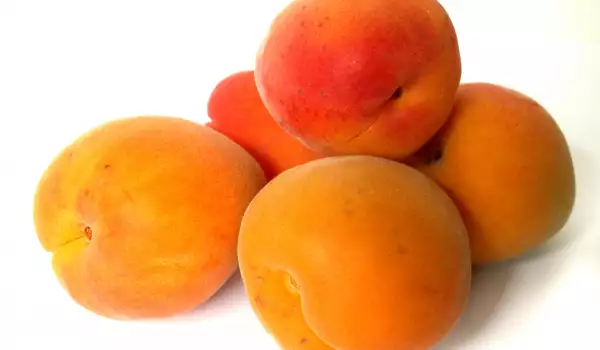
Selection and storage of apricots
Apricot season is from May to August. In winter, they are imported from South America. When choosing apricots you should look for fruits with a rich orange color, avoiding those that are pale and yellow. The apricots should also be slightly soft. To be the best antioxidants, fully ripe fruits should be chosen. Avoid apricots with overly soft spots and brown spots, as these are signs of over-ripeness.
Store apricots up to 2-3 days at room temperature, in a dark, dry and cool place you can keep them for up to 3 weeks.
Culinary use of apricots
Apricots can be consumed both as fresh fruit and dried or used to make sweets and jam. The fruits can also be distilled to make brandy and liqueur. The fruit apricot nectar is one of the most delicious. Apricots are part of many creams. They are used for decoration, and to preserve them in the winter they are made into compote.
The essential oils from their pits are sold commercially as bitter almond oil. Turkey, Italy, Russia, Spain, Greece, USA and France are the leading producers of apricots.
With apricots you can prepare many delicious recipes. Check out some: Apricot Pork Tenderloin, Juicy Vegan Apricot Cake, Apricot Biscuit Cake, Homemade Peach and Apricot Iced Tea, Apricot Sour Cream Roll, Apricot Syrup, Apricot Ricotta Sponge Cake, Apricot Cocoa Cake, Summer compote with cherry plum and apricots and many others.
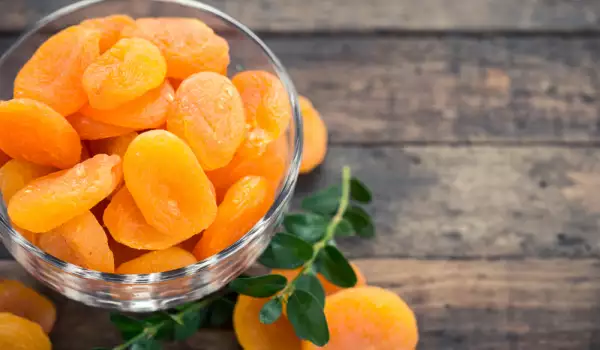
Benefits of apricots
Nutrients in apricots can help protect heart and eye health. Eating three or more apricots a day reduces the risk of age-related macular degeneration. Macular degeneration is one of the main causes of eyesight loss in the elderly. Vitamin A, abundant in apricots, is a good antioxidant that promotes good vision and protects against free radicals.
The high concentration of beta-carotene and lycopene in apricots makes them an extremely important food for heart health. They protect LDL cholesterol from oxidation, which can help prevent heart disease. Carotenoids and lycopene significantly reduce the risk of developing prostate cancer. Just a handful of apricots contains the recommended daily dose of beta carotene needed by our body.
Apricots also contain nutrients such as vitamin A, which help with good eyesight. Vitamin A is a powerful antioxidant that fights free radicals and cell and tissue damage. Free radicals can damage the pupils of the eye.
Apricots are also a good source of fiber, which helps improve the digestive process. Apricots are ideal against constipation and digestive disorders such as diverticulosis. Consume dried apricots for constipation because they contain more fiber than fresh ones and are more beneficial for constipation in this case. Apricot is also known as a powerful aid against worms.
The endless list of ingredients and apricot benefits could go on, it's no surprise that dried apricots were number one on the supply list of NASA astronauts.
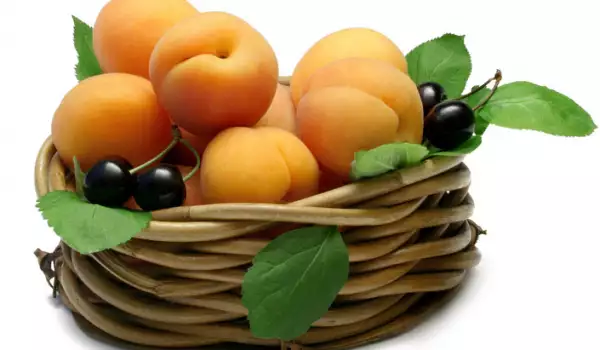
Potassium in apricots is a very important mineral for the overall health of the body. It helps with the balance of fluids in the body - helps against fluid retention and at the same time protects against dehydration.
Apricot kernels are also very healthy. In terms of nutritional composition and useful substances, they come close to almonds. Apricot kernels are used in folk medicine to relieve laryngitis, bronchitis and some other diseases of the respiratory system.
Dried apricots are also extremely beneficial. A handful of dried apricots has 5 times the nutritional content of one large fresh apricot. They can snack between meals to create a feeling of satiety, thus avoiding unhealthy snacks and breakfasts. They support digestion and are very useful for the intestines and stomach. They contain huge amounts of beta carotene, which makes them extremely healthy.
Dried apricots have a very good antibacterial effect, which is why they support the detoxification of the body. They protect against free radicals that damage the skin, slow down the aging process.
Harms from apricots
Dried apricots that are produced commercially may have been treated with sulfur dioxide. They are treated with sulfur to extend their shelf life, as it is a type of preservative that prevents oxidation and color fading. Sulfur can cause severe reactions in people suffering from asthma.
Apricots are not recommended for people who suffer from diabetes, reduced thyroid function and liver disease.
Beautification with apricots
Apricots, besides being a delicious and healthy fruit, are also widely used in cosmetics. Cosmetic masks with apricots have a beneficial effect on the skin - they refresh and rejuvenate it. Apricot oil prepared from the pits is also used in cosmetic masks that smooth out wrinkles.
You can make your own apricot cream. To do this, melt 2 tbsp. almond oil, 2 tbsp. lanolin and 1 tbsp. apricot oil. Mix everything and add 3 tbsp. lemon juice.
Apricot diet
Summer is a season with a huge wealth of fruits, and apricots are one of the tastiest ways to load our body with useful substances and vitamins, why not lose weight. Apricots are an excellent source of dietary fiber, thanks to which their consumption regulates peristalsis and aids digestion.
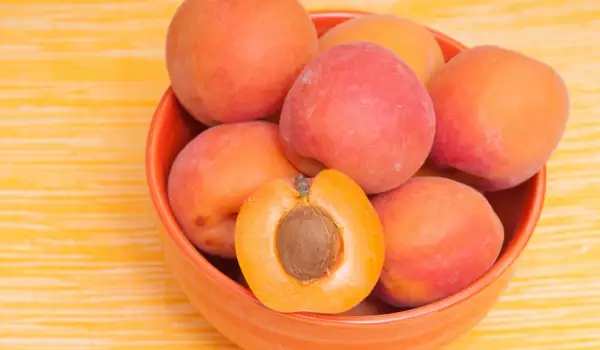
If you want to do an diet with apricots, you can bet on one day a week in which you only consume fresh apricots, water and unsweetened tea. If you want to lose a few extra pounds, continue the weight loss diet for 2-3 days. Apricot diet is characterized by a low content of fat and carbohydrates, therefore it eases the function of the digestive system and supports weight loss. At the same time, it charges the body with useful vitamins, minerals and fiber.
The diet is very easy to follow. 1-1.5 kg of apricots are consumed per day, divided into several meals - preferably 4-5. Drink plenty of water, green tea or herbal tea of your choice. In case of lack of energy and excessive fatigue, honey or bee pollen can be eaten.
It is good to do the apricot diet on the weekend, when the body is not excessively active, and at the same time the heavy meals typical of weekends will be avoided.
One diet day with apricots can be done every week, but the diet for 2-3 days can be followed once a month. It should not be followed by pregnant women and people with severe chronic diseases.
If you love the taste of apricot, be sure to try our apricot cakes - you will be enchanted!
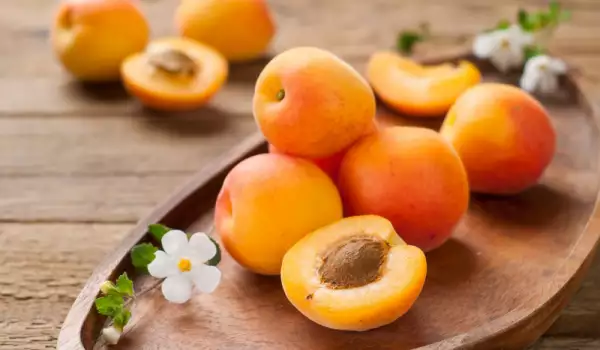

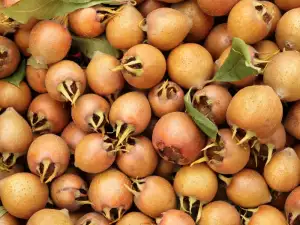




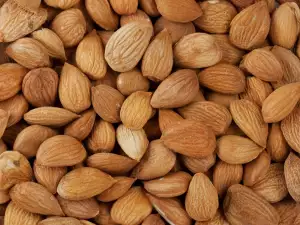










Comments